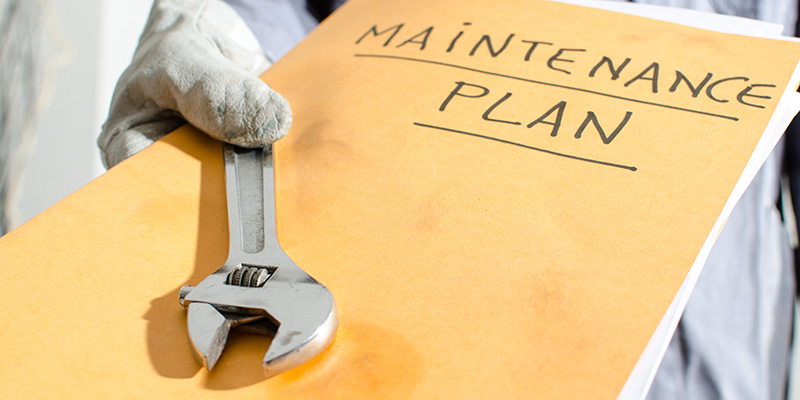Preventive maintenance is a key aspect of a well-run commercial property. But, it can be hard to keep track of all your maintenance needs without a plan. This is where preventive maintenance schedules can help.
Understanding Preventive Maintenance Schedules
What is preventive maintenance and why is it important? Preventive maintenance is the routine maintenance of assets and equipment with the goal of preventing major breakdowns or damages. It is imperative to conduct preventive maintenance because it can have a huge impact on your facility’s finances and operations.
Failure to perform preventive maintenance has a domino effect. When you don’t maintain your equipment and assets, they can start to fail more frequently and more significantly. This will lead to disruptions to your business as well as the need for costly repairs or replacements.
While it does take a lot of time and work, preventive maintenance can help ensure your commercial property stays in excellent condition. It will also save you more money in the long run.
Where do preventative maintenance schedules come in? It is easy to simply say that you want to perform preventive maintenance, but the act itself can be difficult if you don’t know where to begin. Preventive maintenance schedules make this process smoother because you have a set plan you must follow. Additionally, a schedule will help keep you on track and ensure you don’t miss anything important.
What to Include in Your Preventive Maintenance Checklist
Not all commercial buildings and facilities have the same assets and equipment. Therefore, every facility will understandably have different needs and preventive maintenance schedules. Generally, though, there are some things that every commercial property has that you must include in your checklist.
1. Structures
First up on the list is the structures and construction work of your facility. Make sure to check the sturdiness and cleanliness of each structure, including exterior walls, eaves, arches, awnings, and canopies. It is ideal to check these structures on a monthly basis or even daily if you can swing it. Look for visible cracks or damages and repair those as needed.
2. Roofing
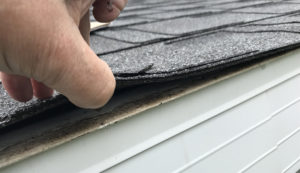 Every preventive maintenance system should include roof inspections. Check the roofing of your facility, including tiles and shingles as well as gutters, drains, and wall connections.
Every preventive maintenance system should include roof inspections. Check the roofing of your facility, including tiles and shingles as well as gutters, drains, and wall connections.
Clear passageways of any debris so that rain can travel smoothly and avoid clogging. If you have any components made of metal, check for signs of corrosion. It is also a good idea to survey the roofing system for any leaks.
3. Openings
Every commercial property will have doors and windows that will require thorough checking at least once a year. Look for cracks and damages, though how often you will need to replace or repair these will depend on the type of material they are made of. Make sure all locks, hinges, knobs, and handles are working as intended. Look for signs of rust on metal components, too.
4. Lighting
You might think your lighting system doesn’t need preventive maintenance. After all, it is much easier to tell when lights don’t work, but the whole point of preventive maintenance is to take precautionary steps before things even start to malfunction.
When it comes to lighting, make sure to check the fixtures themselves as well as the cables, gaskets, screws, and other hardware attached. Replace any bulbs that are starting to dim so that you can maintain the same amount of lighting throughout your commercial facility. You might also want to consider using more energy-efficient components.
5. Electrical System
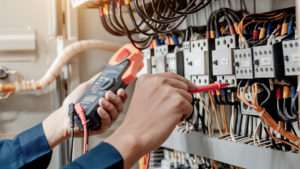 It is equally essential to inspect your electrical system. Because it is hard to accomplish this yourself, make sure to hire a professional electrician to conduct a full check-up.
It is equally essential to inspect your electrical system. Because it is hard to accomplish this yourself, make sure to hire a professional electrician to conduct a full check-up.
Check power supplies daily and have a licensed electrician perform a full inspection every 2 to 3 years or so.
6. Plumbing
Plumbing problems are generally harder to spot since everything is so well-hidden. As such, these problems can quickly spiral out of control without you even noticing. Make plumbing inspections a part of your preventive maintenance schedules. Check the irrigation system, water heaters, boilers, refrigerants, and sewage pumps. You should also look for any signs of leaks or damages, particularly among restroom fixtures.
7. HVAC
Your heating, ventilation, and air conditioning (HVAC) system also requires frequent attention. Make sure you clean your HVAC system at least twice a year to avoid malfunctions. This way, you can keep your employees and customers comfortable.
Here are just some of the things you should do to maintain your HVAC system:
- Lubricate pumps
- Change air filters
- Inspect and clean the condenser coil
- Check that all components are working as intended, including valves, fans, and wires
- Ensure energy efficiency
- Calibrate sensors
- Hire a professional preventive maintenance service to conduct a full inspection, including the boilers and chillers
8. Fire Safety Equipment
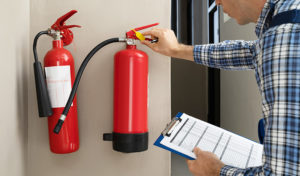 Commercial properties must prioritize fire safety. In fact, the law even mandates that fire extinguishers be inspected and maintained in accordance with NFPA 10.
Commercial properties must prioritize fire safety. In fact, the law even mandates that fire extinguishers be inspected and maintained in accordance with NFPA 10.
How often you need to service fire extinguishers and inspect exits and crawl spaces, though, will depend on state and local ordinances. Aside from that, you must ensure that your sprinkler system (if you have it) is working well.
9. Special Machinery
Every commercial property or facility will have its own special set of equipment and machines. To ensure these machines continue to work optimally, preventive maintenance is necessary. Perform preventive maintenance according to manufacturer guidelines. See to it that you include this in your preventive maintenance schedules so that you don’t forget them.
Remember that assets such as equipment and machinery tend to be expensive. If you want to save money on repairs or replacements, it would do you well to conduct preventive maintenance on a routine basis.
Preventive Maintenance Schedule Template
It is hard to construct your own preventive maintenance schedule without a format to guide you through the process. While your schedule may contain different action items, it should generally include the preventive maintenance work involved and how often you must perform it.
Use the preventive maintenance plan below to help you get started.
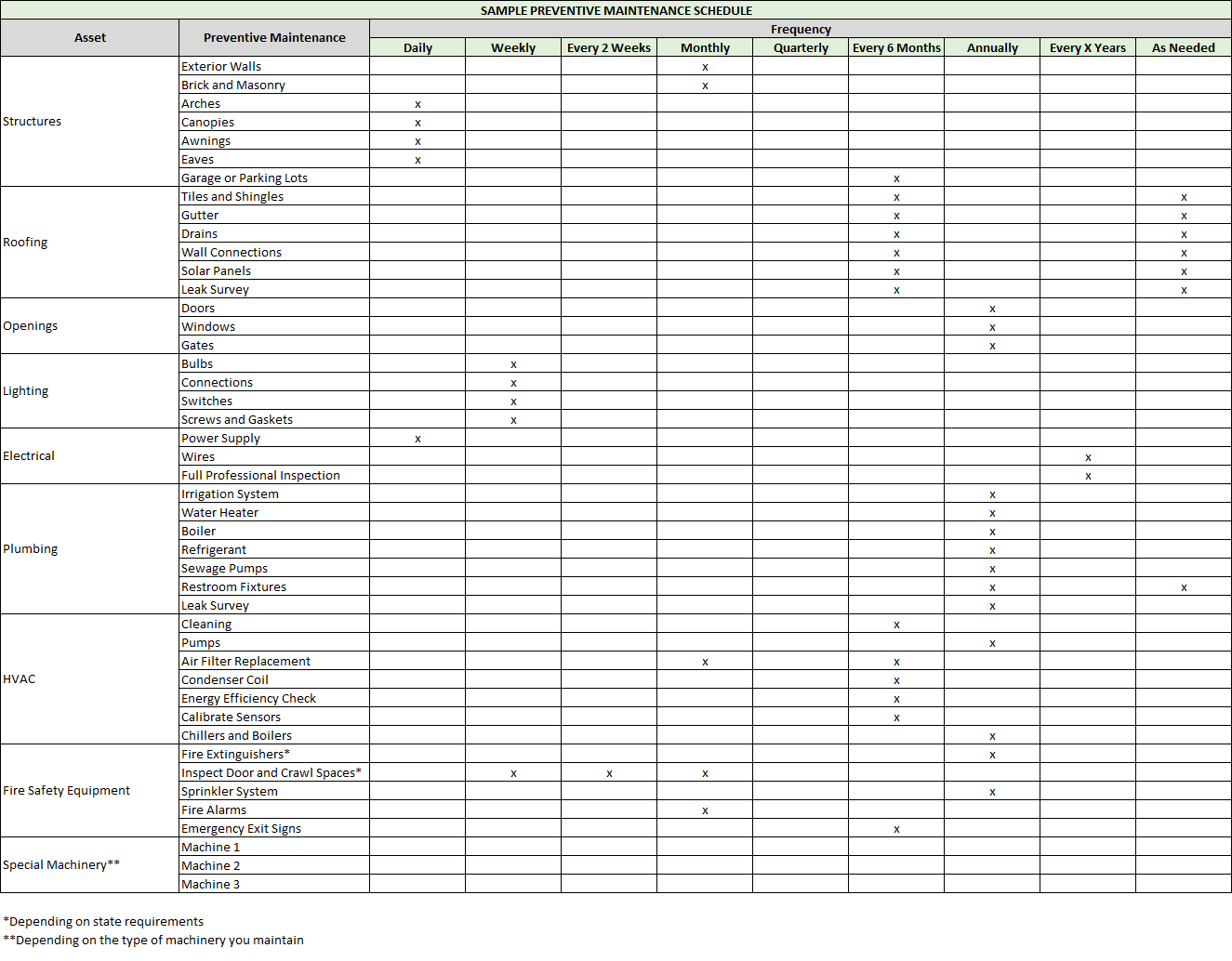
Download Your Preventive Maintenance Plan Template Here
A Methodical Approach to Maintenance
Preventive maintenance schedules are useful tools that any facility or commercial property manager must never do without. By making your own plan, you can complete action items in a systematic manner and never miss a single task.
Of course, making a schedule is not the same as actually performing the tasks on it. It is important to hire a licensed preventive maintenance services company to help you fulfill all your maintenance needs. Call Maintenance Specialists Inc. today at 704.405.6000 to learn more or contact us online to get a free estimate.
RELATED ARTICLES:
- What Are The Common Building Maintenance Problems And How To Solve Them?
- 7 Tips On Which Cleaning Services Your New Commercial Property Needs
- What Is Facilities Maintenance? And How Can It Benefit Commercial Establishments?

